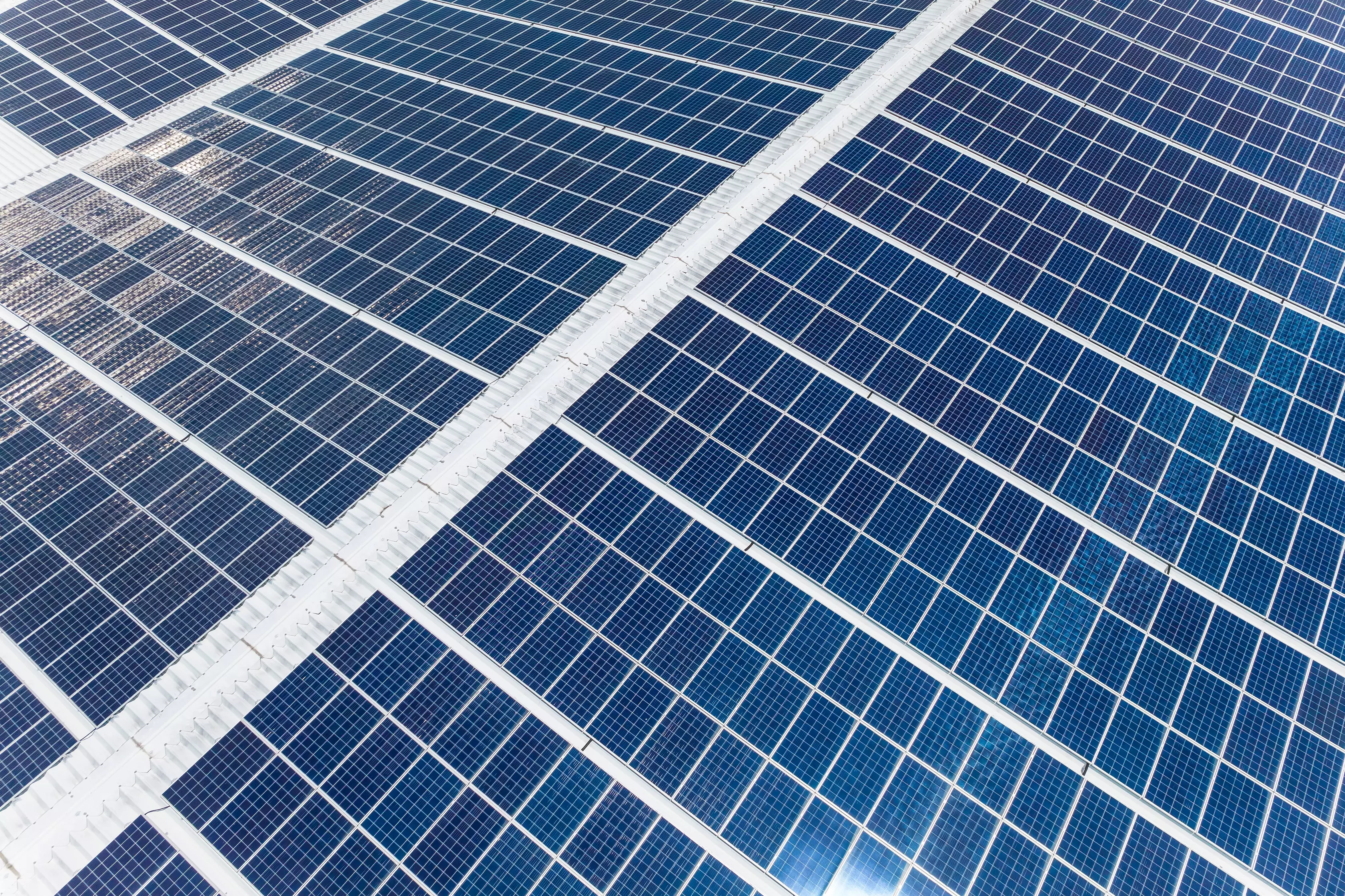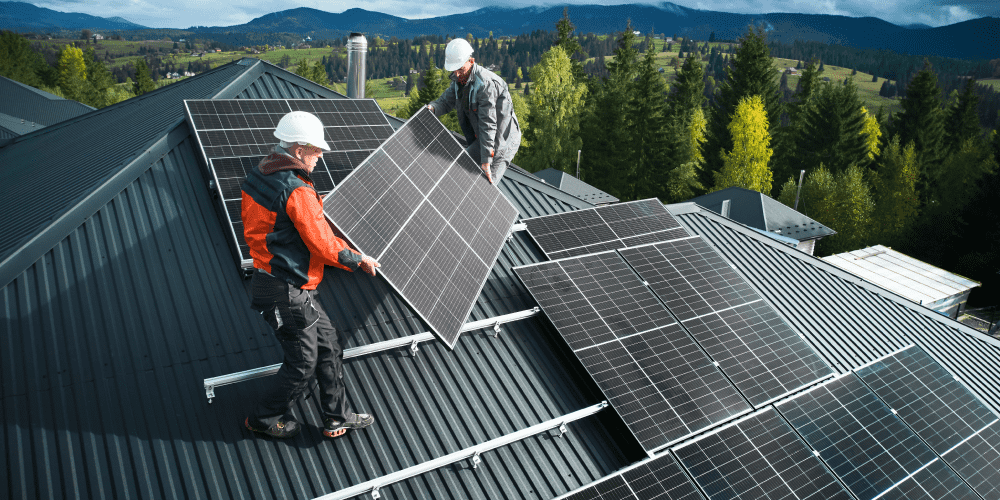Monocrystalline vs Polycrystalline vs Thin-film: which solar panel type is better?
These crystalline cells are the most common for solar panels in Ireland, but what are the key differences? And what are thin-film panels? This article will discuss the pros and cons of each material type to help you decide.
When embarking on a solar energy journey, one of the pivotal decisions is selecting the type of solar panels for your installation. Monocrystalline and polycrystalline panels are the more traditional options, while thin-film panels offer a flexible and innovative alternative.
Each type comes with its own set of advantages and considerations, making the decision a crucial one that requires careful evaluation.

Monocrystalline solar panels
Monocrystalline solar panels stand out for their efficiency and sleek appearance, making them a preferred choice for many solar installations:
Higher efficiency: Monocrystalline panels, crafted from single-crystal silicon, boast higher efficiency in converting sunlight into electricity. This means fewer panels are needed to generate the same amount of power, making them ideal for installations with limited space.
Aesthetic appeal: The manufacturing process of monocrystalline panels results in a uniform black colour and rounded edges, offering a polished and elegant look. This aesthetic appeal makes them popular for residential installations where appearance matters.
Performance in low light: Monocrystalline panels tend to perform better in low light conditions, such as cloudy days or early mornings and evenings, thanks to their higher efficiency and light-absorption properties.

Polycrystalline solar panels
Polycrystalline solar panels offer a compelling alternative. They're resilient panels and a good choice, particularly for those prioritising cost-effectiveness and durability:
Affordability: Polycrystalline panels are typically more affordable to manufacture compared to their monocrystalline counterparts. This makes them an attractive option for budget-conscious consumers or larger installations where upfront costs are a concern.
Temperature tolerance: Polycrystalline panels perform better in hotter climates. This resilience to heat makes them a preferred choice in regions with consistently high temperatures.
Environmental considerations: The manufacturing process for polycrystalline panels is less energy-intensive, appealing to environmentally conscious consumers seeking to minimise the carbon footprint of their solar installations.
Thin-film solar panels
Thin-film solar panels introduce a new dimension to solar technology, offering flexibility and versatility:
Flexibility and lightweight design: Thin-film panels are thin, lightweight, and flexible, allowing for installation on curved surfaces or integration into building materials. This versatility opens up new possibilities for solar applications in architecture and design.
Low-light performance: Thin-film panels excel in low light conditions, capturing diffuse sunlight effectively. This makes them suitable for installations in areas with frequent cloud cover or shading.
Cost-effectiveness and space efficiency: Thin-film panels require fewer materials and less energy to manufacture, translating to lower production costs. While they may have lower efficiency than crystalline panels, their adaptability and cost-effectiveness make them a viable option for large-scale solar projects.
Making the right choice
When choosing between monocrystalline, polycrystalline, or thin-film solar panels, it's essential to consider factors such as efficiency, cost, aesthetics, environmental impact, and specific performance requirements.
By weighing the advantages and considerations of each type, you can make an informed decision that maximises the benefits of solar energy for your home or business.


